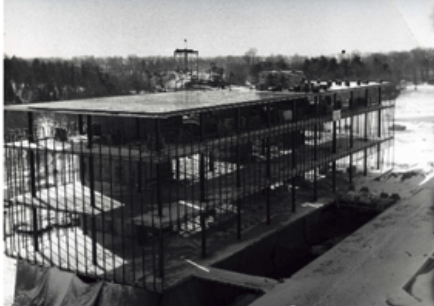PDF
The Nile voyageurs : recognition of Canadas role in the Empire, 1884-1885 Item Info
- Title:
- The Nile voyageurs : recognition of Canadas role in the Empire, 1884-1885
- Creator:
- Michel, Anthony Patrick
- Date Created:
- 2012
- Degree Awarded:
- Doctor of Philosophy
- Subjects:
- Canada - History History, Modern
- Geographical Focus:
- Canada Egypt Sudan
- Supporting Materials:
- n/a
- Description:
- In the late summer of 1884, Canada's Governor General received a request from the W ar Office to engage several hundred "Voyageurs" for service with the British army in the Sudan. The voyageurs from Canada were required to pilot boats through the cataracts of the Nile, so that General Garnet Wolseley's relief expedition could reach General Charles Gordon, who was besieged in Khartoum, by a self-proclaimed prophet called the Mahdi. Newspapers and documents reveal that many in Canada considered this request to be a great compliment to the country. It was the first time that Britain had requested a body of Canadians for an imperial expedition. S o m e Canadians thought the expedition would be an opportunity for Canada to play a bigger role in the empire. Others in Canada expressed ambivalence towards this particular group of m e n as their representatives on an imperial campaign. The Nile Voyageurs were civilian, mostly working class men, with a proportional over-representation of Aboriginal and francophone men. The largest group of m e n was from Ottawa, many of w h o m were shantymen w h o worked in the timber trade. This study introduces and examines a large body of letters written by the Nile Voyageurs on the expedition, as well as a range of other newspaper items and manuscript documents. The study is a labour history, a history of settler-aboriginal relations, an imperial history, a history of Canadian identities, a study of the militia, a series of regional histories and a study of politics, society and culture in the 1880s. This episode provides a glimpse of colonial Canada before the Northwest rebellion and the full implementation of the Indian act. It explores Canada's imperial identity on the eve of the Imperial Federation movement, the Congo Conference and Britain's new expanded empire. The project introduces a critical discourse method based on the theory of recognition articulated by Axel Honneth. Honneth's theory of recognition will be used as the basis for the textual analysis, it will inform a critique of the cultural struggles in various social situations and it will also serve as the basis for an understanding of public memory as intersubjective recognition across time.
Source
- Preferred Citation:
- Michel, Anthony Patrick. The Nile voyageurs : recognition of Canadas role in the Empire, 1884-1885. 2012. Carleton University, Doctor of Philosophy.
- Reference Link:
- https://cuhistory.github.io/grads/items/hist_103.html
Rights
- Rights:
- Copyright the author, all rights reserved, unless otherwise indicated.

